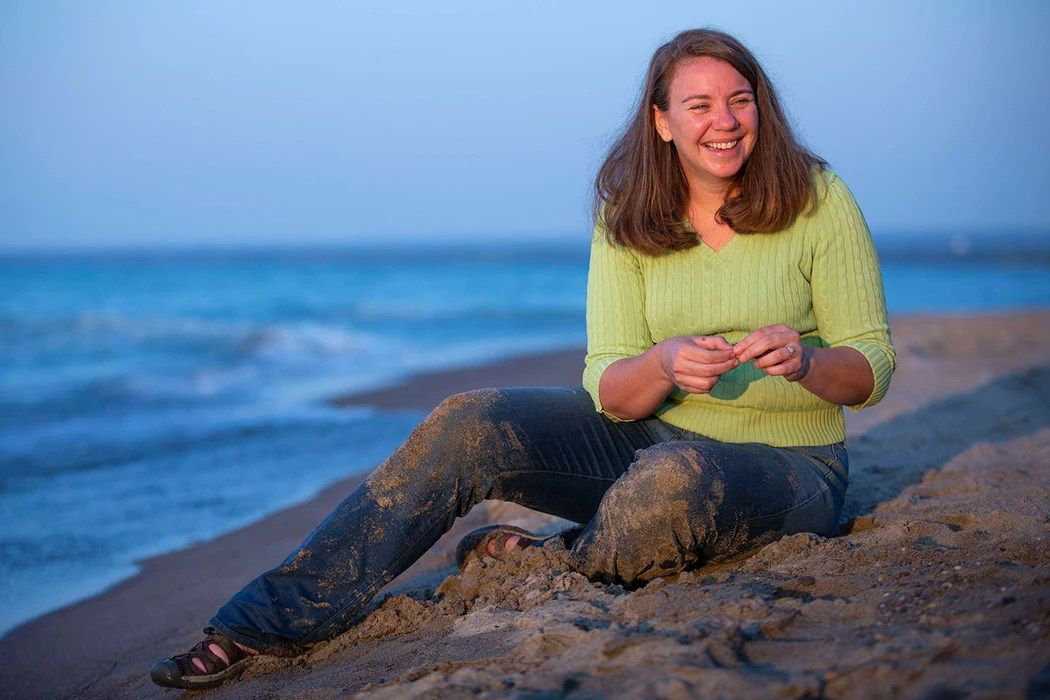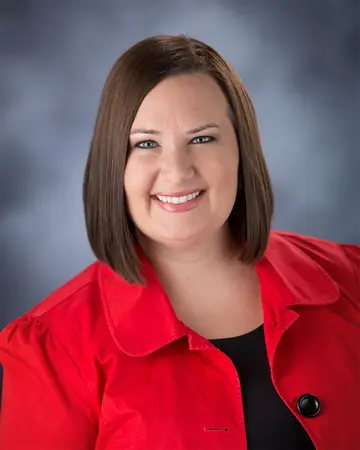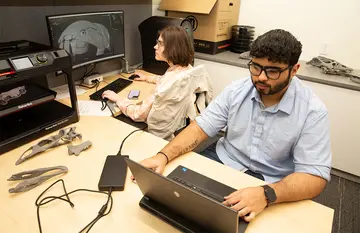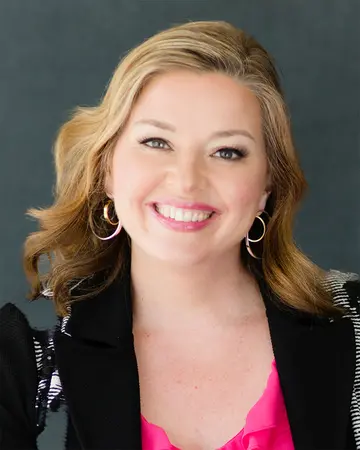23rd Heinz Awards honor Dr. Sherri Mason

Dr. Sherri Mason, professor of chemistry and chair of Fredonia’s Department of Geology and Environmental Science.
Mason’s findings reveal presence of microplastic contaminants in freshwater and bottled water
The Heinz Family Foundation named Dr. Sherri Mason as the recipient of the prestigious 23rd Heinz Award in the Public Policy category. She is recognized for her groundbreaking research identifying the presence of microbeads and microfibers in fresh water, and for raising awareness of the potential impact of microplastics and associated contaminants on the food chain and human health, resulting in state, federal and international policy change.
As part of the accolade, Dr. Mason will receive an unrestricted cash award of $250,000.
A professor of chemistry and chair of Fredonia’s Department of Geology and Environmental Science, Dr. Mason gained initial recognition as the first to research and identify microplastics pollution in the Great Lakes, the largest freshwater system in the world. Her work has drawn international attention to the threats posed by microplastics in freshwater and led to the passage of state measures banning microbeads (extremely small pieces of plastic used in cleansing products as exfoliating agents) and to the enactment of the federal Microbead-Free Waters Act of 2015. Other countries are following suit. The Canadian and New Zealand governments banned microbeads in early 2018, and the United Kingdom, Ireland, Italy, Sweden and other Scandinavian countries are rolling out bans on microbead-laden products over the next two years. To date, 448 brands from 119 different manufacturers have promised to remove plastic microbeads from their products.
Dr. Mason is also leading research on another non-biodegradable material that is finding its way into the freshwater food chain — synthetic fibers from materials commonly used for fleece clothing and blankets. Tiny fibers from the fabric are thought to enter the ecosystem during the wash cycle, after which their small size allows them to pass through filtration systems at wastewater treatment facilities. The fibers are ingested by fish and enter the food web, introducing chemical contaminants that are potentially harmful to both aquatic organisms and humans, including endocrine disruptors, neurotoxins and carcinogens.
“We don’t go out looking for microfibers — what we find is what we find — but they are being found in all of our samples,” says Dr. Mason. “The question is where are they coming from, where are they going, and what is the impact they are having? Those questions are not in any way fully answered yet. As far as a solution, the problem of microfibers can only be tackled if we come at it from many angles. That could mean adding filters to our washing machines in the same way that dryers have filters. It could be developing something that can be thrown in with the wash cycle to help capture the fibers, and asking fabric manufacturers to look at how their clothes are made, and whether changes could be made to produce fleece that sheds less. Individually, we all should consider washing our clothes less.”
Dr. Mason is also using her expertise to expand her focus to include the presence of microplastics in drinking water. In March 2018, the results of a new study conducted by Dr. Mason on behalf of Orb Media analyzed bottled water from nine countries — the U.S., China, Brazil, India, Indonesia, Mexico, Lebanon, Kenya and Thailand — and found that 93 percent showed some contamination from microplastics, or plastic debris less than one millimeter in length. Different water brands were tested, including Nestlé Pure Life, Evian, Dasani and San Pellegrino. This study has prompted plans for a review by the World Health Organization. Microplastics have also been found in samples of sea salt, freshwater sediment and even in air samples.
Despite the prevalence of microplastics in the environment, Dr. Mason believes change is possible.
“I absolutely believe that there is hope, because the vast majority of the plastics we use are completely unnecessary,” says Dr. Mason. “In most communities in developed parts of the world, we have access to good, clean tap water, and have no need to buy bottled water. It’s the marketing that has led us to believe that tap water is dirty. Instead we should be investing in infrastructure to ensure everyone has access to clean water.”
“Even the most mundane changes to our habits can have an impact on the amount of plastic entering the environment,” she adds. “Eliminating the use of plastic bags, straws or plastic utensils individually may not seem like a lot, but it adds up when you consider that there are seven billion of us on the planet.”
Dr. Mason was recently invited to join the Joint Group of Experts on the Scientific Aspects of Marine Environmental Protection (GESAMP) Working Group 40, a body that advises the United Nations on the scientific aspects of marine environmental protection. GESAMP is presently working on a grey paper on methods for sampling and reporting data for plastic pollution in the world’s oceans, as well as in freshwater. A December 2018 publication date is anticipated.
“Sherri’s research has made the issue of plastic pollution real and present for everyone,” said Teresa Heinz, Chairman of the Heinz Family Foundation. “Her findings have localized the human and environmental health threats associated with microplastics and their presence in food chains as a result, have driven decisive policy change, and cooperation by industry. Her ongoing work can be an important key to ending the steady accumulation of plastics in our environment.”
Established to honor the memory of U.S. Senator John Heinz, the Heinz Awards this year recognize those who have made significant contributions in five distinct areas of great importance to Senator Heinz: Arts and Humanities; Environment; Human Condition; Public Policy; and Technology, the Economy and Employment. Now in its 23rd year, the Heinz Awards has recognized 139 individuals and awarded more than $27.5 million to the honorees.
In addition to Dr. Mason, the 23rd Heinz Awards honored the following individuals, who will receive their awards in Pittsburgh on Oct. 24:
Arts and Humanities: Ralph Lemon, an innovative choreographer and multidisciplinary artist whose richly moving body of work addresses concepts of race, justice and identity in performances that interweave movement, media, visual arts and language;
Environment: Ming Kuo, Ph.D., a psychologist whose research on the impact of urban green space on physical and mental health is changing urban forest and landscape design policy;
Human Condition: Norman Atkins, an educator whose bold new model for preparing, equipping and training teachers and school leaders is effecting dramatic, positive change in classrooms across the country;
Public Policy: Enric Sala, Ph.D., a marine ecologist working at the intersection of science and policy to protect the world’s last pristine marine environments; and
Technology, the Economy and Employment: Linda Rottenberg, a social entrepreneur whose global nonprofit is opening doors of economic opportunity for entrepreneurs in emerging countries as well as in the United States.
Established by Teresa Heinz in 1993 to honor the memory of her late husband, U.S. Senator John Heinz, the Heinz Awards celebrates the accomplishments and spirit of the Senator by recognizing the extraordinary achievements of individuals in the areas of greatest importance to him. The awards, administered by the Heinz Family Foundation, recognize individuals for their contributions in the areas of Arts and Humanities; Environment; Human Condition; Public Policy; and Technology, the Economy and Employment. Nominations are submitted by invited experts, who serve anonymously, and are reviewed by jurors appointed by the Heinz Family Foundation. The jurors make recommendations to the board of directors, which subsequently selects the award recipients.



